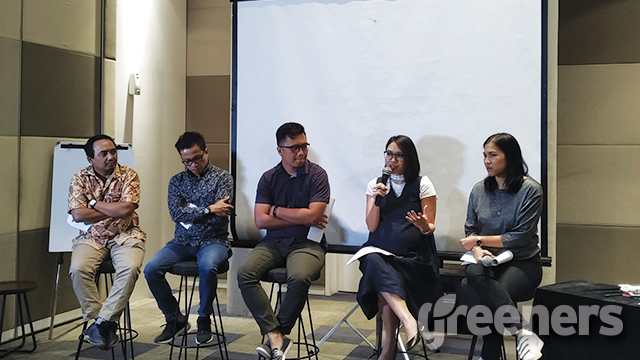Jakarta (Greeners) – Amid lawsuit files by Indonesia Plastic Recycling Association, or ADUPI, to Supreme Court to challenge single-use plastic ban arguing the policy against Law on Waste Management, law experts call it as baseless legal action.
Experts state that regional administration has the authority to issue single-use plastic ban policy within specific requirements and limitation.
ADUPI files the lawsuit against Bali Governor for issuing governor regulation on reducing single-use plastic waste volume in 2018.
The Association argued that the governor regulation is conflicted with the 1999 Law on Human Rights, the 2008 Law on Waste Management, the 2011 Law on Establishment of Legislation Regulation and the 2014 on Government Administration.
READ ALSO: ADUPI Files Lawsuit against Bali Government for its Plastic Waste Ban Policy
Muhamad Ramdan Andri Gunawan Wibisana, lecturer at Law Faculty of University of Indonesia, said that ADUPI challenges four laws implementation and regional government’s authority to issue policies.
“I would say that regional has its own authority in issuing this single-use plastic ban policy. The authority in the 2018 Law on Waste Management is given to regions to follow up waste reduction and give authority to the governor to regulate waste volume reduction, because the ban is part of [waste] reduction,” said Wibisana in Jakarta on Monday (29/04/2019).
Furthermore, he said that further explanation on waste management already included in the 2012 Government Regulation on Household Waste and Waste Similar to Household Waste Management. On Clause 11, the regulation states that waste reduction includes waste volume limitation.
In addition, the regulation also cites implementation of waste volume limitation such as the use of recyclable and bio-degradable packaging, to limit the use of plastic bags, and/or avoid single use products and/or packaging consumption.
READ ALSO: Indonesian Retailers Enforce Paid Plastic Program Starts in 1 March 2019
Usman Hamid, director of Amnesty International Indonesia, said that single-use plastic ban policy does not violate human rights for waste collectors and recycles to have better livelihood.
“ADUPI considers the policy to human rights violation, I think that makes sense because they hire a lot of people. However, if you look further, this policy has nothing to do with human rights violation. Ban and limit single use plastic is to ensure human rights, especially rights for good and healthy environment. It’s also human rights to ensure the integrity of workers’ psychological and physical conditions,” Hamid said adding the latter is guaranteed by the law issued in 2003 on Labor, International Labor Office, and International Covenant on Economic, Social and Cultural Rights.
“So, if recycling industry questions this policy, it looks like [they] only counts from money revenue or financial from the industry, companies do not see it from workers’ welfare,” he said.
Reports by Dewi Purningsih



















































